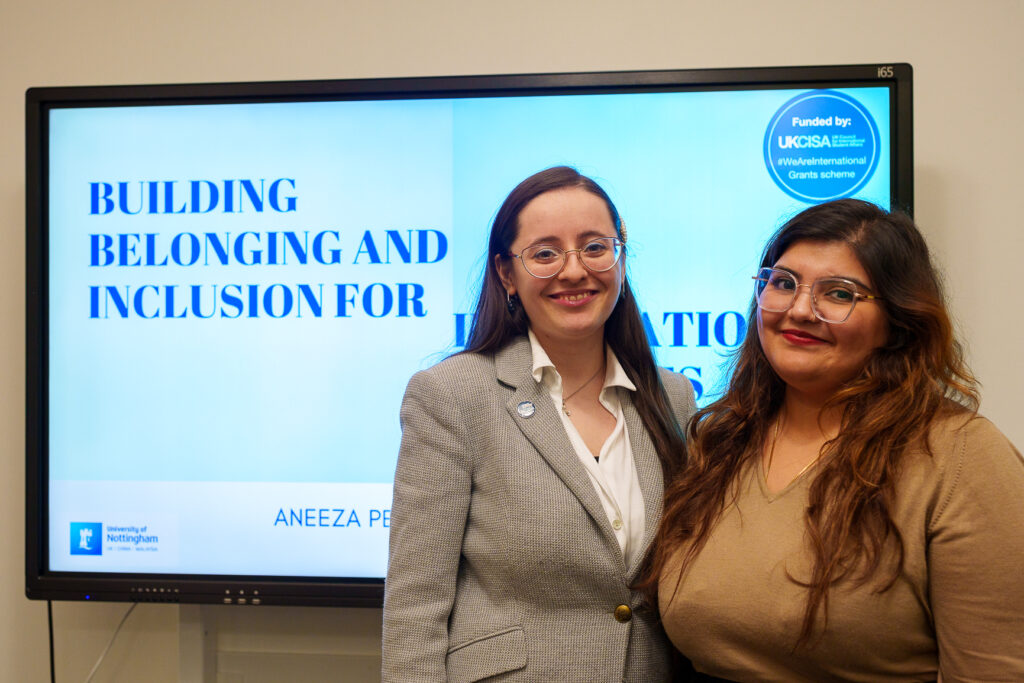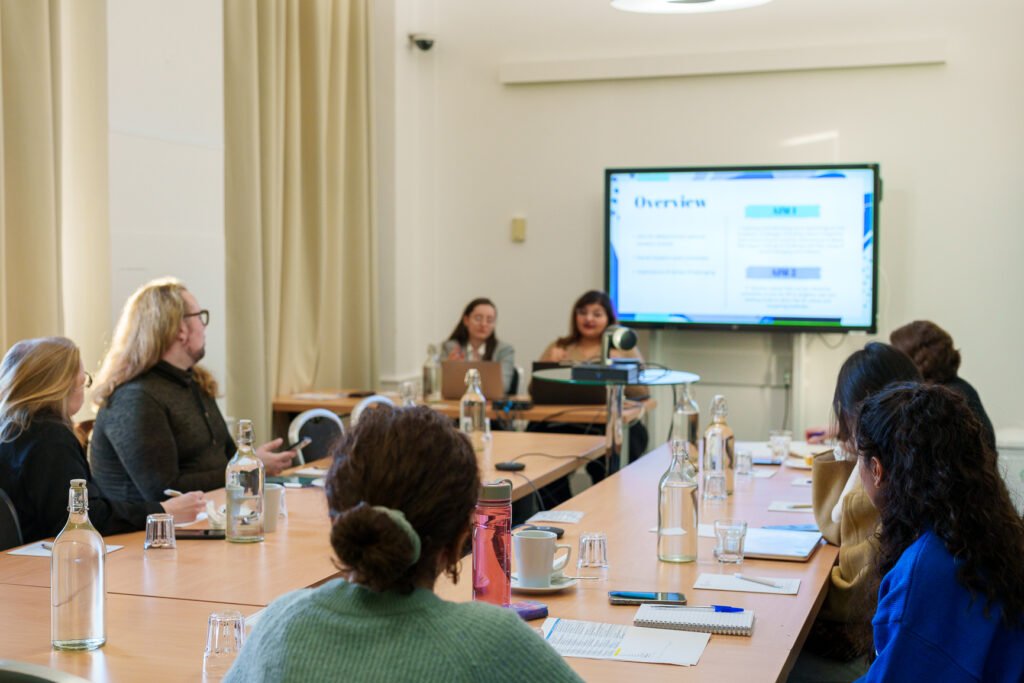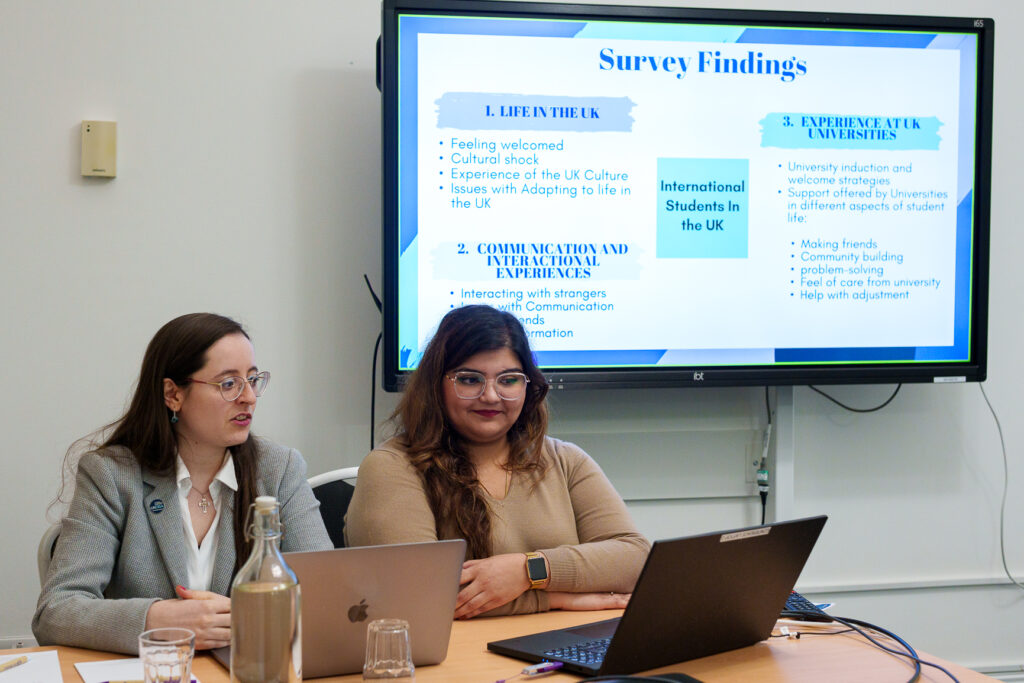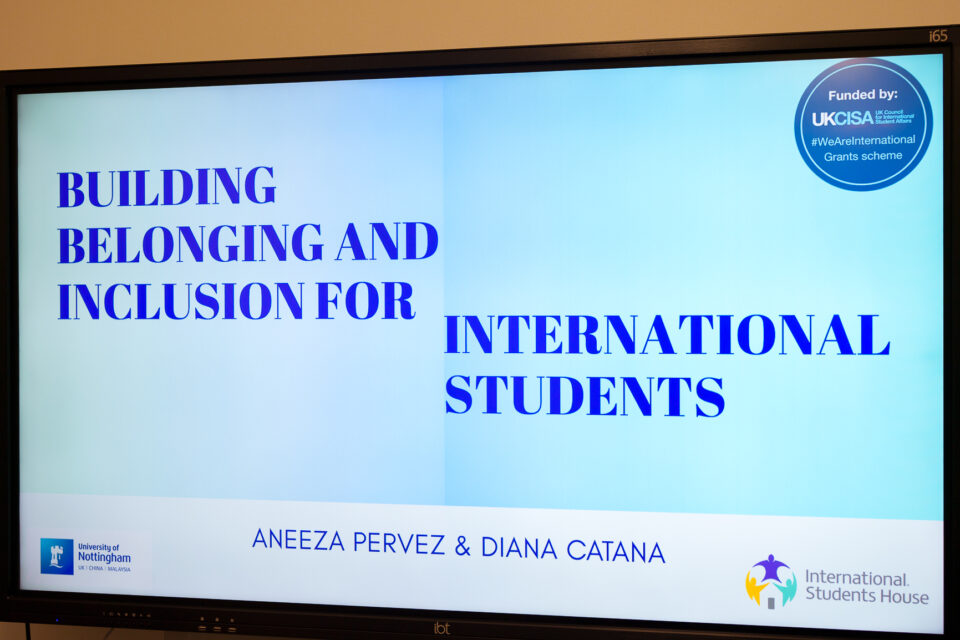On Tuesday I got the chance to attend a workshop hosted by a former ISH resident Aneeza Pervez (now based in the University of Nottingham) and our current ISH resident Diana Catana (PhD student at King’s College London and former UKCISA #WeAreInternational Ambassador). Aneeza and Diana were awarded funding by UKCISA to undertake an original research project, with ISH’s support, entitled: “Exploring Opportunities and Challenges to International Students’ sense of Belonging and Inclusion in the UK”.

There were two main aims throughout this project. One aim was to explore and identify socio-psychological and academic challenges (including cultural integration and cultural shock faced by international students. The second aim was to be able to develop outputs that can be utilised by universities across the UK to help their students navigate loneliness.
This project was to conduct extensive research including interviews and surveys with international students across London and Nottingham. The team wanted to explore the students’ experiences, focusing on aspects of loneliness and belonging, and to identify areas where support is needed. At the workshop I was joined by representatives from ISH member universities and ISH staff and residents. We had a chance to hear the research findings and then brainstorm some ideas to help international students overcome loneliness and acclimatise to UK culture.
We were able to hear real-life situations where international students have struggled when coming to the UK and how they had little to no help when navigating their new life, perhaps because they had arrived late and missed important orientation sessions.
Throughout the presentation, Diana and Aneeza showed us the methods which they used (interviews and surveys) and their findings. The findings were split into three sections. Life in the UK, Communication and Interactional Experiences and Experience at UK Universities.

Life in the UK
The average score for feeling welcome for London (7.1) is higher than Nottingham (5.6), however, this decreased by one point on average the longer students were in the UK at the time of the survey.
The average score for culture shock for London (4.8) is lower than Nottingham (5.4). The Nottingham students claim to struggle on average by one point more than students in London.
Communication and Interactional Experiences
While all students are moderately to highly invested in creating their social networks, the significant trends to mention are: More friends as students’ age increases, fewer friends the longer the students are in the UK and more friends in London compared to Nottingham.
The longer in the UK, the more survey takers admitted to making mostly British friends. Over 30s preponderantly make international friends
Experience at UK Universities
More students from Nottingham admit to building social networks explicitly surrounding their university compared to their London counterparts.
- Latin American students report the highest median score for building friendships in university whereas African students show the lowest score.
- Furthermore, the more students spend in the UK, the more reliance on the university as a source of information increases, but still lags behind the internet and social networks.
- For Nottingham students, university is almost on par with the internet, lagging behind friends as a primary source of information.
- London shows a more variable experience in terms of university involvement in welcoming or helping to solve students ‘problems, whereas Nottingham University students tend to report a more normal distribution of results,

The Core issues that Diana and Aneeza were able to identify after they conducted their research were:
1. Cultural Familiarity
2. Socialisation and Networking Opportunities
3. Academic Adjustment
4. Student staff relation
5. Managing adult life in the UK
6. Accessing Support
Overall, even though universities do make sure that international students feel welcomed into the UK, there is still much more they can do to make their experience a whole lot better. One of the ideas that stood out to me the most at the roundtable at the end of the presentation was making sure international students are still being welcomed after their first year of study. This can be done by holding a welcome back party before the academic year starts so they don’t feel alone. I believe the results of this project by Aneeza & Diana will contribute to the good work being done by ISH, UKCISA and member universities to improve the experience of international students across the UK.
Have you also read these articles?
Equality, Diversity and Inclusion
How to Support Diversity & Inclusion in Your Everyday Life

